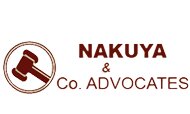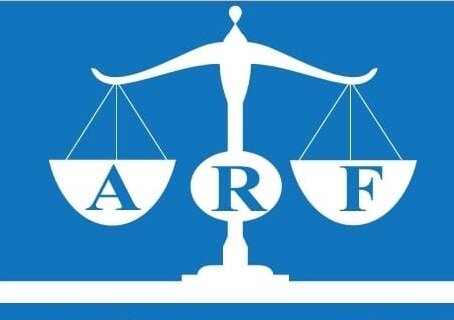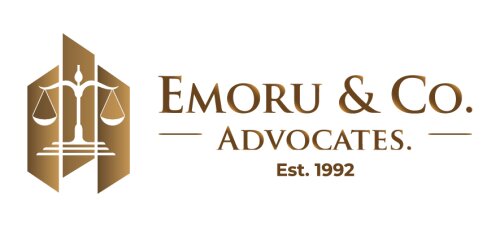Best Nonprofit & Charitable Organizations Lawyers in Kampala
Share your needs with us, get contacted by law firms.
Free. Takes 2 min.
List of the best lawyers in Kampala, Uganda
About Nonprofit & Charitable Organizations Law in Kampala, Uganda
Nonprofit and charitable organizations play a vital role in the socio-economic development of Kampala, Uganda, by addressing various community needs ranging from education to health care. These entities are typically driven by mission rather than profit and are required to comply with specific legal frameworks that promote accountability, transparency, and sustainability. The legal framework provides structure for registration, reporting, and governance of these organizations to ensure they operate effectively and remain compliant with national policies. Understanding the local laws governing these organizations is crucial for founders, donors, and stakeholders engaged in nonprofit activities.
Why You May Need a Lawyer
There are several situations where legal assistance might be necessary when dealing with nonprofit and charitable organizations in Kampala. For instance, if you are starting a new nonprofit, a lawyer can help you navigate the complex registration process. Existing organizations may require legal support for compliance with ongoing reporting obligations or the resolution of disputes. Additionally, handling fundraising agreements, reviewing contracts, and managing employment disputes are common areas where legal expertise becomes invaluable. Moreover, if there are any issues concerning regulatory compliance or restructuring, having legal insight is important to avoid penalties and ensure operational continuity.
Local Laws Overview
The regulatory environment for nonprofit and charitable organizations in Kampala is primarily governed by the Non-Governmental Organizations Act. This Act outlines the registration processes, reporting requirements, and governance standards for NGOs. Additionally, the Income Tax Act provides guidelines on tax exemptions applicable to NGOs, while the Public Collections Act regulates fundraising activities. Compliance is crucial, as failure to adhere to these statutes could result in fines, revocation of operating licenses, or other legal actions. It is also essential for organizations to maintain good standing with the National Bureau for Non-Governmental Organizations, which monitors NGO activities in Uganda.
Frequently Asked Questions
What is required to register a nonprofit organization in Kampala?
To register a nonprofit organization, you need to file an application with the National Bureau for NGOs, submit your constitution, and provide a list of directors along with their respective national identification.
Can a nonprofit in Kampala engage in profit-generating activities?
Yes, nonprofits can engage in profit-generating activities as long as the profits are reinvested back into the organization to advance its stated charitable purposes.
Are nonprofits in Kampala exempt from taxes?
Nonprofits that meet certain criteria may qualify for tax exemptions, especially if they are involved in educational, religious, or charitable activities. Verification with a tax professional or legal advisor is recommended.
What are the annual reporting requirements for NGOs in Kampala?
NGOs are generally required to submit annual financial statements and activity reports to the National Bureau for NGOs. Compliance timelines and specific requirements may vary based on the organization type.
How can a nonprofit organization lose its legal status in Uganda?
Failure to comply with regulatory requirements, such as neglecting to submit annual reports or engaging in unauthorized activities, can lead to the revocation of an NGO’s operating license.
What is the legal framework governing fundraising activities in Kampala?
Local laws, under the Public Collections Act, regulate fundraising activities. It is essential to obtain proper permissions and licenses to conduct fundraising legally.
What governance structures are required for nonprofits in Kampala?
Nonprofits in Kampala typically need to establish a board of directors, which is responsible for overseeing management, ensuring compliance, and steering the organization towards its mission.
Can international NGOs operate in Kampala?
Yes, international NGOs can operate in Kampala, though they must comply with all local registration requirements and regulations, similar to domestic organizations.
Are there specific legal requirements for employing staff in nonprofit organizations?
Nonprofits must comply with Ugandan labor laws, which include employment contracts, minimum wage stipulations, and other labor-related obligations.
What should I do if my nonprofit faces legal issues?
Engage a lawyer with experience in nonprofit law to help you navigate the issue, ensuring compliance with applicable laws and finding resolutions that align with your organizational goals.
Additional Resources
Several resources can aid those needing legal advice concerning nonprofits in Kampala. The National Bureau for Non-Governmental Organizations is a primary regulatory body offering guidance. Additionally, the Uganda Law Society provides legal assistance and can recommend lawyers who specialize in nonprofit law. Also consider reaching out to consulting firms and legal aid organizations offering pro bono services for NGOs.
Next Steps
If you need legal assistance, start by researching law firms in Kampala with expertise in nonprofit and charitable organization law. Prepare all necessary documents and information related to your organization for a comprehensive consultation. Reach out to legal professionals for an initial meeting to discuss your needs, expectations, and legal strategies. Maintaining open communication and a proactive approach will help you resolve any legal issues efficiently while ensuring your organization remains compliant and successful in its mission.
Lawzana helps you find the best lawyers and law firms in Kampala through a curated and pre-screened list of qualified legal professionals. Our platform offers rankings and detailed profiles of attorneys and law firms, allowing you to compare based on practice areas, including Nonprofit & Charitable Organizations, experience, and client feedback.
Each profile includes a description of the firm's areas of practice, client reviews, team members and partners, year of establishment, spoken languages, office locations, contact information, social media presence, and any published articles or resources. Most firms on our platform speak English and are experienced in both local and international legal matters.
Get a quote from top-rated law firms in Kampala, Uganda — quickly, securely, and without unnecessary hassle.
Disclaimer:
The information provided on this page is for general informational purposes only and does not constitute legal advice. While we strive to ensure the accuracy and relevance of the content, legal information may change over time, and interpretations of the law can vary. You should always consult with a qualified legal professional for advice specific to your situation.
We disclaim all liability for actions taken or not taken based on the content of this page. If you believe any information is incorrect or outdated, please contact us, and we will review and update it where appropriate.

















